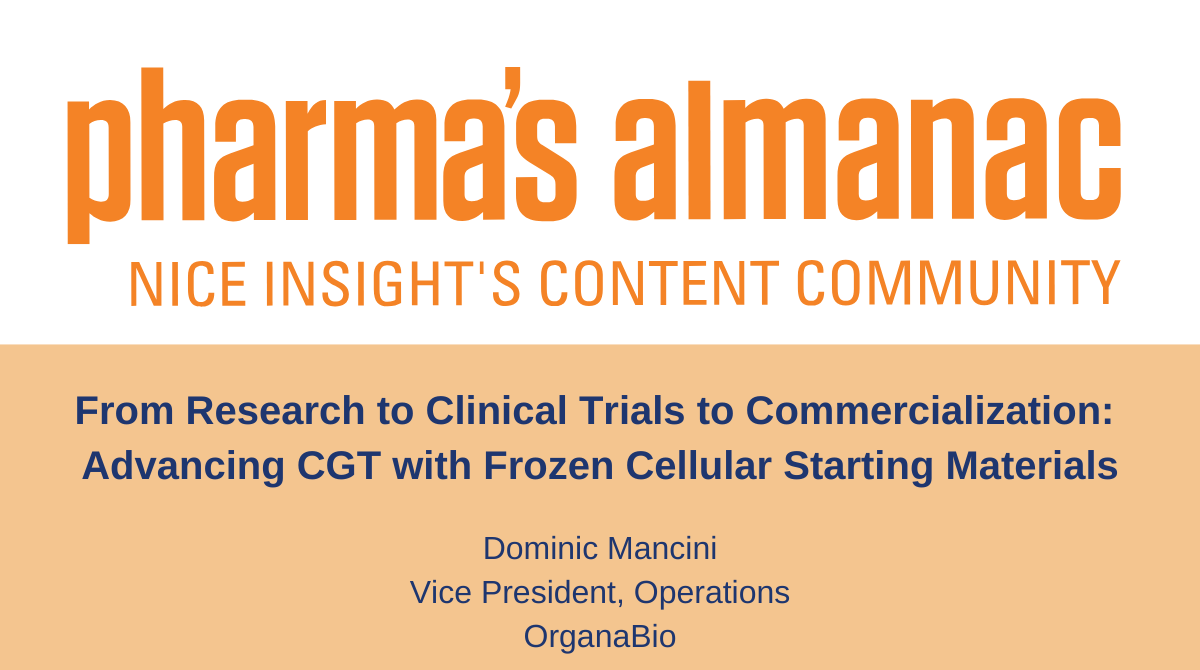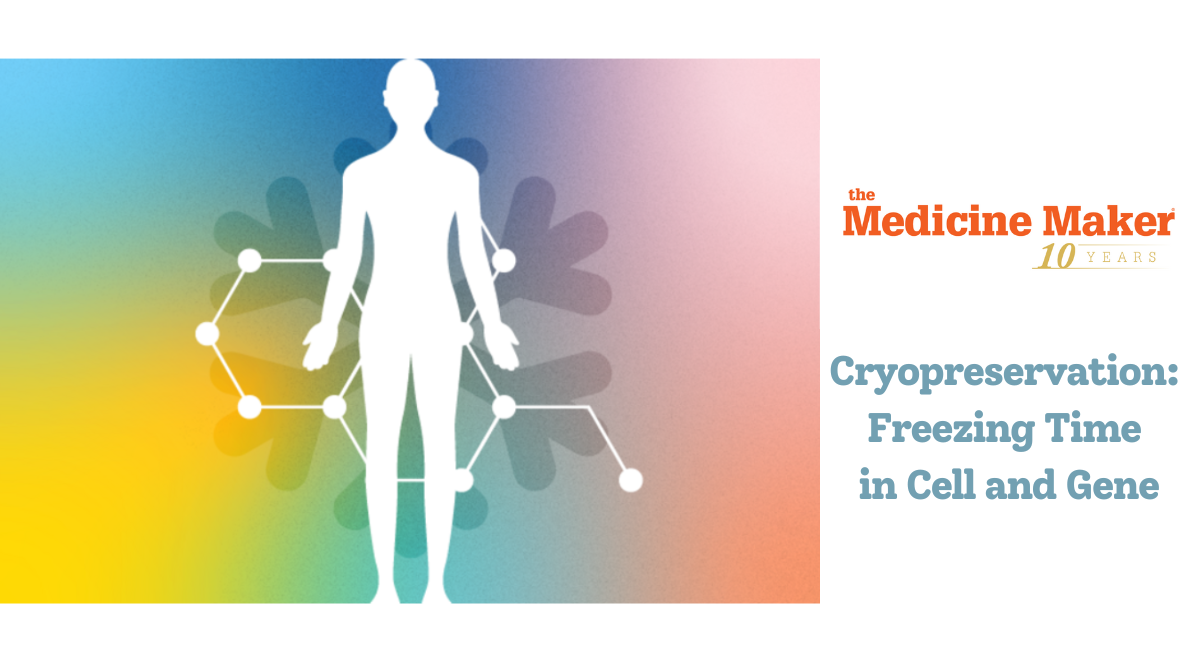There have been a number of key events in the drug discovery community’s diary in 2024 to date, from AACR 2024 and LSX Congress 2024 to SLAS 2024 in Boston and Barcelona. Drug Discovery World reflected on other significant events in the year to date.
Pharma Sustainability Integrates 2024
On 28 February 2024, Life Science Integrates’ Pharma Sustainability Integrates annual environment event took place in London. It covered two tracks: “Targets and expectations”, and “Technology through the supply chain”.
The keynote address entitled ‘Homeopathy for Heat’ was presented by Hugh Montgomery, Professor of Intensive Care Medicine, UCL & Co-founder, Real Zero. He outlined the action that is needed to sustain life on earth, including several shocking statistics related to climate change. He said: “You have to commit fully, you have to lead, you have to act, whether or not others do.”
The first Fireside Chat covered the adoption of new technologies and digital solutions to reduce the carbon footprint of pharma supply chains. Next, there was a discussion about how to measure environmental impact and use these to drive change.
The speakers discussed why collaboration between pharma development, manufacturing and supply is essential for a more efficient and more sustainable pharma supply chain. Thereafter, experts covered the urgency to address climate change growth, and how choosing a role aligned with sustainability is becoming a top priority as many ask the question ‘what can I do to make a difference?’ Finally, “COP or Cop-out?” asked how the healthcare, pharma, and wider life sciences sectors should build on the outcomes of COP28.
Commenting on the importance of the event in her opening address, Roz Bekker, Managing Director of Janssen UK & Ireland, said: “It is now more important than ever that, across healthcare, we collaborate and work together to realise the change we need.”
ASGCT 2024
From 7-11 May 2024, the 27th annual American Society of Gene and Cell Therapy (ASGCT) annual conference took place. Read about this year’s clinical trial data here. From a programme perspective, the keynote speakers covered a range of expertise.
Dr Kevin Campbell, Professor and Roy J Carver Biomedical Research Chair in Molecular Physiology and Biophysics, as well as Director of the Senator Paul D Wellstone Muscular Dystrophy Specialized Research Center at the University of Iowa’s Carver College of Medicine, spoke about the challenges of gene therapy approaches in advanced muscular dystrophy.
DDW spoke with Stella Vnook, CEO of Likarda, who attended this year’s event and spoke of the groundbreaking advances that provide patients and physicians with new treatment options, especially in immuno-cell therapies for cancer. She commented on how these technologies were once considered experimental, but now offer hope for previously untreatable conditions. She said: “Access to these therapies remains a significant challenge. Lowering costs involves streamlined drug development, expanding cell therapy manufacturing, and more efficient reimbursement models. Achieving widespread access to these therapies will require numerous small advances across various fields. A key focus should be reducing dosing for most cell therapies. More targeted delivery to specific locations can cut costs and minimise off-target toxicity. For gene therapies, using more efficient vectors can also lower the required initial dosing.”
Angelo Raggioli, Head of Technology Development, ReiThera, said that extensive engagement and insightful sessions during ASCGT 2024 helped identify key areas of focus. He said: “These include the imperative need for stable cell lines in the production of conventionally transfected viruses, a pivotal step towards enhancing scalability. Furthermore, the refinement of chromatographic conditions for vector purification is paramount, alongside a concerted effort to eliminate residual products such as capsids with partial genomes.”
According to Matthew Paterson, Chief Commercial Officer, eXmoor Pharma, the progress of viral vectors and vector-based therapies was a hot topic at ASGCT. He said: “Regeneron, Freeline Therapeutics, and Rocket Pharmaceuticals each presented clinical data from Phase I/II trials demonstrating progress for their therapies for patients with severe genetic deafness, Gaucher disease and leukocyte adhesion deficiency-I (LAD-I), respectively. Interest in therapies for rare genetic diseases like these continues to grow, especially when compared to the progress of cancer drugs.”
He continued: “Vector technology itself continues to advance apace, especially with industry-leading adeno-associated virus (AAV) vectors. Encoded Therapeutics shared preclinical data for multiple programs from its AAV vector engineering platform. Regeneron discussed approaches to improve AAV targeting, and companies like Affinia Therapeutics and Voyager Therapeutics shared updates on novel capsid technology designed to help AAVs breach the blood-brain barrier.”
Synthetic & Engineering Biology British-Swiss Summit 2024
The University of Bristol’s BioDesign Institute hosted the Synthetic & Engineering Biology British-Swiss Summit on 22 May 2024. The event was devoted to understanding the opportunities presented by engineering biology technologies to drive innovation in healthcare, forging collaborations between Switzerland and the UK with a focus on environmental sustainability.
Keynote talks were presented by Tay Salimullah VP, Head US & Global Commercial, Value & Access, and Member of the Executive Committee at Novartis Gene Therapies and Harry Destecroix, Founder of Science Creates and Co-founder of Ziylo, a University of Bristol spin-out company.
The summit explored future perspectives in cell engineering, bioprocessing and scale up, AI-driven solutions in synthetic and engineering biology, and accelerating the translation of fundamental research to commercial uptake. Anike Te, Aegis Professor of Engineering Biology at the University of Bristol and Chief Strategy Officer at Lucideon, said: “Innovation is essential for solving the global challenges we face today. Engineering biology has the potential to provide many of these solutions. The UK and Switzerland are important countries for innovation and it is inspiring to see more collaboration in synthetic and engineering biology.”
Markus Leitner, Ambassador of Switzerland to the UK, said: “The UK and Switzerland are uniquely placed to work together on this frontier of scientific discovery and technological innovation. Bringing together scientists, industry leaders and start-up entrepreneurs from both countries will foster the exchange of ideas, forge new partnerships, and catalyse new initiatives that will shape the future of synthetic and engineering biology.”
ISCT 2024
ISCT 2024, which took place from 29 May to 1 June in Vancouver, Canada, was the 30th ISCT Annual Meeting for global CGT translation. 25 plenary and concurrent sessions took place in which global key opinion leaders presented novel research, data, and ideas that they believe will shape the future of the CGT translation sector.
Josh Ludwig, Global Director, Commercial Operations, ScaleReady, noted how hot the topic of sustainability is across the CGT industry and at ISCT specifically. He said: “For years, the perception has been that CGT scale-up is stifled by space limitations. But the bigger issue has actually been operational inefficiencies. Space utilisation is perhaps the most visible case, but optimisation in areas like process flow, inventory management, equipment management, equipment utilisation, and overall process resource requirements can lead to more sustainable practices and reduce unnecessary expenditures. And while some are arguing that transformational change in areas like manufacturing will be a panacea, the reality is that without first fully optimising processes, it won’t be enough – and worse, it will lead to additional waste.”
Stella Vnook, on the other hand, commented that events such as ISCT showcase not only the latest scientific breakthroughs but also the collaborative efforts needed to overcome the current barriers in CGT. She said: “Through innovation in drug delivery and strategic partnerships, the promise of these therapies can become a reality for a broader patient population.”
Meanwhile, Carol Houts, Chief Strategy Officer, GermFree, said: “One look at the price tags of the marketed chimeric antigen receptor (CAR) T-cell therapies makes it clear that cell-based therapies have not reached sustainability, a major ongoing challenge across the healthcare spectrum. A sustainable ecosystem would improve patient access, streamline operational efficiencies and reduce costs, while reducing environmental impact and addressing treatment inequities seen today. It’s a long list, but at ISCT we heard from many stakeholders who believe that all these needs can be met through a move to decentralised manufacturing, and momentum is building.”
Rupa Pike, Senior Director, Head of Field Scientists and Strategic Alliance, Cell Therapy, Catalent, told DDW that experts at ISCT 2024 put significant focus on accelerating iPSC therapies towards the clinic, where experts debated the pros and cons of hypoimmune iPS cell lines as starting materials for allogeneic therapies and the need for comprehensive characterization with safety in mind. She said: “Cell therapy developers also focused on the need to develop better analytical assays, including in-line/at-line vs off-line testing, to acquire real-time, uninterrupted data using AI and ML with cloud connectivity. Additionally, there was a deep discussion centred around the integration of rapid automated analytics, replacing cell-based assays with multiparametric biomarker assays, and the use of in silico tools and omics.”
BIO 2024
The BIO International Convention took place from 3-6 June 2024. The event included more than 100 sessions across 18 focus areas, featuring biotechnology companies, investors, service providers, government officials, regulators, and patient advocates. Tracks included “Infectious diseases and vaccines”, “Asia-Pacific opportunities”, “Next generation biotherapeutics”, “Business development and finance” and more.
Stella Vnook, CEO of Likarda, commented that the programme exemplified the importance of innovation in drug delivery. She said: “The importance of collaboration cannot be overstated in this context. The challenges in advanced gene and cell therapies are too vast for any single entity to tackle alone. Partnerships between companies with complementary technologies and approaches are essential to propel the field forward swiftly.”
On the other hand, Priya Baraniak, Chief Business Officer, OrganaBio, noted that bottlenecks continue to make extremely promising CGTs largely inaccessible to most patients. She said: “At BIO, we had multiple conversations with companies who are eager to reduce the time it takes to develop these therapies, as well as the time and cost it takes to produce a dose and successfully deploy it to the patient, through creative partnering and solutions where the whole is greater than the sum of the parts.”
Baraniak also highlighted the importance of streamlining logistics. She said: “Most cell therapies rely on moving patient or donor apheresis material to a distant manufacturing facility. This has limited clinical trials to academic medical centers in a short list of cities and keeps novel therapies from being offered much further geographically. In most cases, developers use cryopreservation of autologous and allogeneic cellular material to add flexibility to their processes, but these capabilities are similarly limited to geographies with access to appropriately equipped facilities.”
World Blood Donor Day
Blood Donor Day, an annual event on 14 June, was organised for the first time in 2004 by four core international organisations: the World Health Organization, the International Federation of Red Cross and Red Crescent Societies; the International Federation of Blood Donor Organizations (IFBDO) and the International Society of Blood Transfusion (ISBT) to raise awareness of the need for safe blood and blood products, and to thank blood donors for their life-saving contributions. On Blood Donor Day 2024, DDW spoke with industry experts about the significance of blood donorship.
Priya Baraniak, Chief Business Officer, OrganaBio, said: “As an industry, we heavily depend on both altruistic and compensated blood donations to provide the essential cellular starting materials driving the next generation of life-saving therapies for cancer, autoimmune diseases, and yet-to-be-discovered conditions.”
Becky Butler Cap, MBA, Senior Vice President, Vitalant Biotherapies, said: “Every two seconds, a patient in the US still needs blood. Donors of all blood types are urgently needed, especially those with type O blood – the most transfused blood type and what emergency room doctors reach for in trauma situations because of its broad compatibility when every second counts.”
Jenny Ficenec, Executive Vice President, Blood Centers of America, weighed in saying that the need for blood is constant. She said: “The current donor base is aging. In the last 10 years, BCA centres have seen a 39% decline in donors under 30. It is important for young people to learn about the importance of blood donation and for anyone who is eligible to donate blood to do so regularly.”






